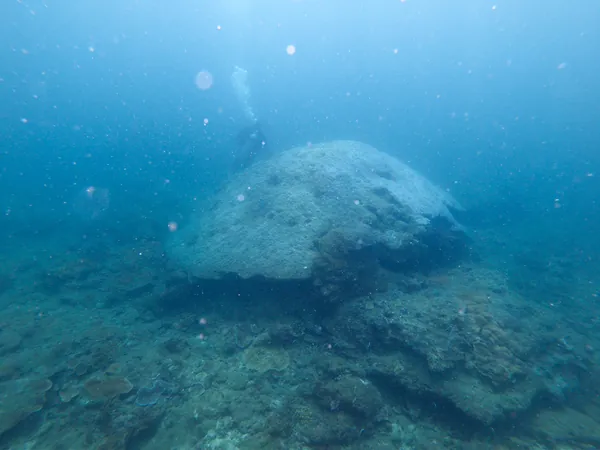
Corals Unveil the Hidden Impact of Deforestation in Borneo
2025-07-03
Author: Siti
Revolutionary Research Shines Light on Forest Destruction
A groundbreaking study led by researchers at the University of Leicester has uncovered startling evidence regarding the onset of industrial deforestation in Malaysia and its complex effects on coastal ecosystems—encapsulated in the very skeletons of corals.
Published in the prestigious journal Scientific Reports, this innovative research employed coral cores from Borneo's coast, painting a vivid picture of how deforestation has reshaped marine ecosystems.
The Coral Chronicles—A Natural Archive
The study's collaboration featured esteemed scientists from the UK, Malaysia, and Australia, including Professor Jens Zinke and Dr. Arnoud Boom. This research builds on earlier findings highlighting corals as invaluable historical records of environmental changes, particularly those linked to deforestation.
Massive corals were pivotal in this investigation, capable of absorbing various trace elements from their environment as they grow. By analyzing these elements, researchers can gain insights into fluctuations in temperature, sediment, and water conditions.
Capturing Time: Coral Sampling in Action
Joint efforts included taking extensive coral samples with underwater pneumatic drills, yielding cores spanning several meters from various coral colonies near the Miri-Sibuti Coral Reef National Park. The project even navigated challenges posed by the COVID-19 pandemic, sending samples for advanced trace element analysis to the John de Laeter Center in Australia.
Professor Zinke elaborated on their techniques, focusing on the ratio of barium to calcium (Ba/Ca) in coral skeletons. This ratio serves as a powerful proxy for sediment erosion—detecting changes long before modern instruments could.
Revealing the Evidence: A Century of Change
Analysis of century-long Ba/Ca records revealed that sediment levels remained stable until around 1950, when a sharp increase indicated significant soil erosion coinciding with the beginning of industrial deforestation. This warning sign underscores the far-reaching environmental impacts of human activities.
Future Research and Urgent Implications
Current investigations involve studying traces of organic carbon in river waters, led by Ph.D. student Hannah Kingsland, to deepen understanding of tropical land-coastal ecosystem interactions.
Walid Naciri, a former Leicester Ph.D. student, emphasized the urgency of their findings, stating, "Deforestation’s impact on coastal systems is undeniable. Knowing the baseline conditions before deforestation is critical for assessing its impacts, which began around 1950. Local governments must reduce deforestation and find sustainable income alternatives for communities, while also restoring vital tropical forests. This dual approach can minimize sediment discharge and enhance carbon absorption."
A Call to Action from the Depths of the Ocean
Dr. Arnoud Boom highlighted the monumental significance of their discovery, declaring, "We have essentially found a fingerprint that marks the start and ramifications of industrial deforestation in Malaysian Borneo, severely impacting the Miri-Sibuti Coral Reef National Park. It’s all thanks to these massive corals that endured long enough to create this detailed historical record."




 Brasil (PT)
Brasil (PT)
 Canada (EN)
Canada (EN)
 Chile (ES)
Chile (ES)
 Česko (CS)
Česko (CS)
 대한민국 (KO)
대한민국 (KO)
 España (ES)
España (ES)
 France (FR)
France (FR)
 Hong Kong (EN)
Hong Kong (EN)
 Italia (IT)
Italia (IT)
 日本 (JA)
日本 (JA)
 Magyarország (HU)
Magyarország (HU)
 Norge (NO)
Norge (NO)
 Polska (PL)
Polska (PL)
 Schweiz (DE)
Schweiz (DE)
 Singapore (EN)
Singapore (EN)
 Sverige (SV)
Sverige (SV)
 Suomi (FI)
Suomi (FI)
 Türkiye (TR)
Türkiye (TR)
 الإمارات العربية المتحدة (AR)
الإمارات العربية المتحدة (AR)